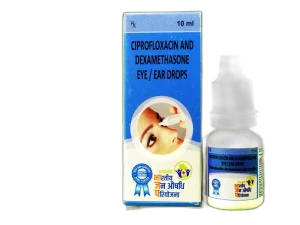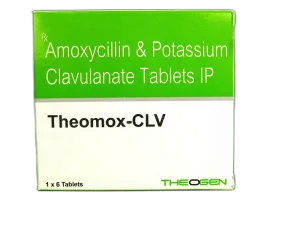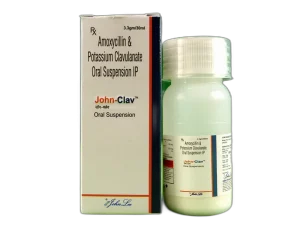◉1. **Indication:** This combination is typically used to treat various skin conditions, especially fungal infections and associated symptoms, such as itching and pain
2. **Application:** Apply a thin layer of the cream or ointment to the affected area of the skin. Be sure to clean and dry the area before application
3. **Frequency:** The frequency of application can vary depending on the severity of the condition and the specific product instructions. Typically, it’s applied 2-3 times a day
4. **Duration:** The duration of treatment is also specified by a healthcare professional or as indicated on the product label. It’s important to complete the full course of treatment even if symptoms improve before it’s finished
5. **Wash Hands:** After applying the cream or ointment, wash your hands thoroughly to prevent unintentional transfer to other parts of the body, especially the eyes and mouth
6. **Avoid Sensitive Areas:** Be cautious to avoid getting the product into sensitive areas, such as the eyes, mouth, or mucous membranes
7. **Consult a Healthcare Professional:** If the condition doesn’t improve or worsens after using the product for the recommended duration, consult a healthcare professional
Always read and follow the specific instructions provided with the product, as different formulations and brands may have slight variations in their directions for use. Additionally, it’s essential to consult a healthcare provider before using any medication, especially if you have any underlying medical conditions or are taking other medications, to ensure there are no contraindications or potential drug interactions.
Composition of Drug
◉1. **Skin Irritation:** Topical clotrimazole can sometimes cause skin irritation, including redness, itching, burning, or rash. Lignocaine, on the other hand, is a local anesthetic and may cause numbness or tingling at the application site
2. **Allergic Reactions:** In rare cases, either of these components can lead to allergic reactions. Signs of an allergic reaction may include hives, itching, swelling, severe dizziness, or difficulty breathing
3. **Thinning of the Skin:** Clotrimazole can, over prolonged use, lead to thinning of the skin, which may be more pronounced when used in combination with other medications
4. **Local Anesthetic Effects:** Lignocaine is a local anesthetic, and if excessive quantities are absorbed through the skin, it can lead to systemic effects like dizziness, drowsiness, or even difficulty breathing
5. **Burning or Stinging:** Both clotrimazole and lignocaine can cause a temporary burning or stinging sensation upon application
6. **Dryness or Peeling:** Clotrimazole can sometimes cause dryness or peeling of the skin in the treated area
7. **Nausea or Vomiting:** In some cases, particularly if lignocaine is absorbed in significant amounts, it can lead to nausea or vomiting
It’s important to note that side effects can vary from person to person, and the likelihood and severity of side effects may depend on factors such as the individual’s sensitivity, the duration of use, and the specific condition being treated. If you experience severe or persistent side effects, it’s essential to seek medical attention promptly. Additionally, always use these medications as prescribed by a healthcare professional to minimize the risk of side effects.
How does the Drug work
◉Warning:,,1. **Allergic Reactions:** Some individuals may be allergic to clotrimazole or lignocaine. If you experience symptoms such as rash, itching, swelling, dizziness, or difficulty breathing, discontinue use immediately and seek medical attention
2. **Avoid Ingestion:** These medications are meant for topical use. Do not swallow or ingest them. Keep them out of the reach of children, as ingestion can be harmful
3. **Avoid Contact with Eyes:** Avoid getting the medication in your eyes, as it can cause irritation. In case of accidental eye contact, rinse thoroughly with water and seek medical advice if irritation persists
4. **Medical History:** Inform your healthcare provider about your medical history, especially if you have a history of allergic reactions, skin conditions, or liver problems
5. **Pregnancy and Breastfeeding:** If you are pregnant or breastfeeding, consult your healthcare provider before using these medications to ensure they are safe for you and your baby
6. **Overuse:** Do not use more of the medication than prescribed, as excessive use can lead to adverse effects
7. **Local Anesthetic Effect:** Lignocaine has a local anesthetic effect, which can temporarily reduce sensation in the treated area. Be cautious to avoid injury or burns while the area is numb
8. **Consult a Healthcare Provider:** If the condition being treated does not improve or worsens after using the medication as prescribed, consult your healthcare provider for further guidance
9. **Interactions:** These medications may interact with other drugs. Inform your healthcare provider about all the medications and supplements you are taking to avoid potential drug interactions
10. **Storage:** Store the medication as per the manufacturer’s instructions, typically in a cool, dry place away from direct sunlight
Always use combination medications like clotrimazole and lignocaine as directed by your healthcare provider or follow the instructions provided on the packaging to ensure safe and effective treatment. If you have any concerns or experience unusual side effects, consult a healthcare professional promptly.




